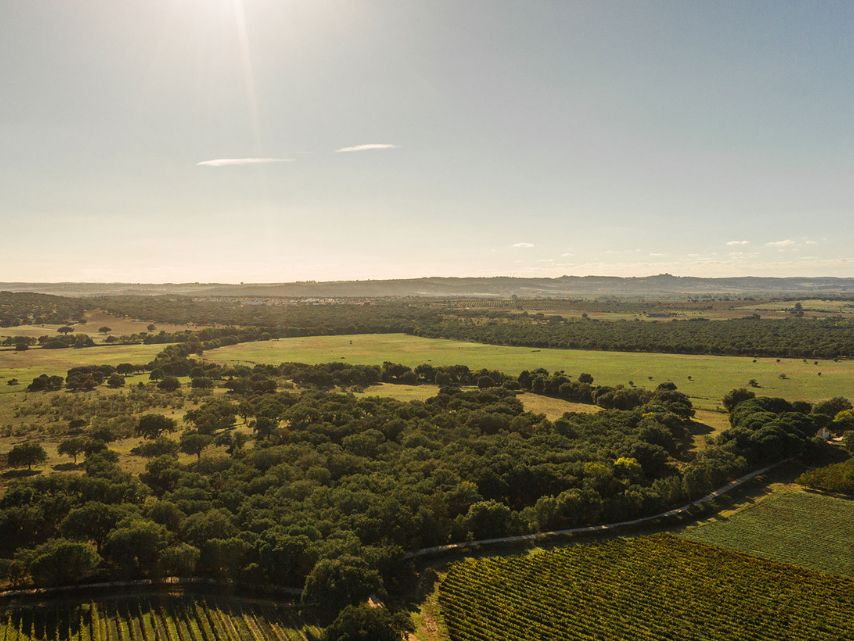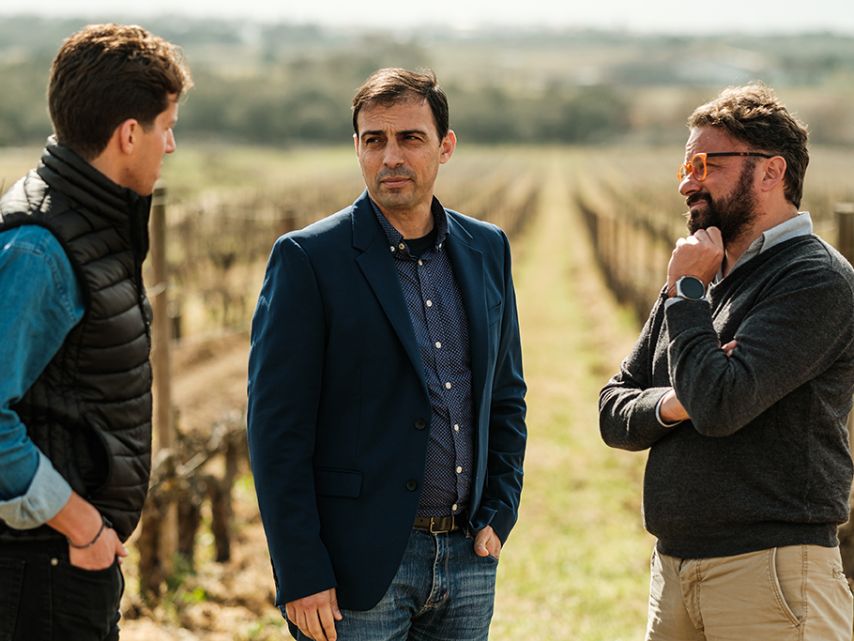A Rich History of Quality Winemaking
The Tapada de Coelheiros has a history dating back to 1467 and has been producing quality wines in Alentejo since 1991. Located in the village of Igrejinha, it is approximately at the same latitude as Lisbon, but 100km to the east. Tapada is a classic representation of the Alentejo landscape, preserving the region's cultural traditions and ecological balance with a strong focus on sustainability. It was the second producer in Portugal to receive sustainability certification and, in addition, all their vineyards, walnut orchards, olive groves and their flock of 1,300 sheep are organically certified.

Unveiling the Secrets of the Land
Tapada de Coelheiros is also a Portuguese pioneer in the field of regenerative agriculture. The property spans about 800ha, of which 50ha are vineyards, 40ha are orchards and there’s a vast cork oak forest of 600ha where sheep, deer, and fallow deer graze freely. The local biodiversity is further enriched by an olive grove and the presence of other animals such as ducks, hares and rabbits. The Alto vineyard is located in the centre of the estate, at an altitude of about 300m and is surrounded by cork oak forest, an old pine grove and a meadow. The soils are of granitic origin with quartz and clay. This vineyard stands out for its predominance of white grape varieties, thanks to the richness and depth of the clay soil.
Elevating the Noble Arinto Grape
Alto is made from the Arinto grape variety. The grapes were hand-picked and pressed with whole clusters to minimise the production of solids. After pressing, the juice was settled for 24 hours. The must was transferred to 500l used french barrels, where it fermented and matured for 12 months. It was aged in the bottle for another 4 years, highlighting the nobility of the Arinto variety as a white wine for ageing.











